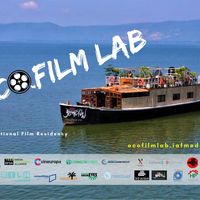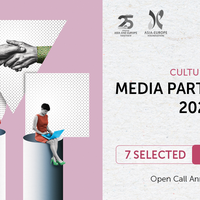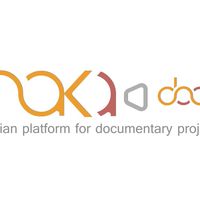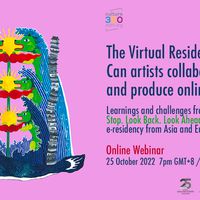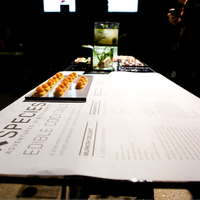ECO Film Lab | Interview with Bibesh Roy
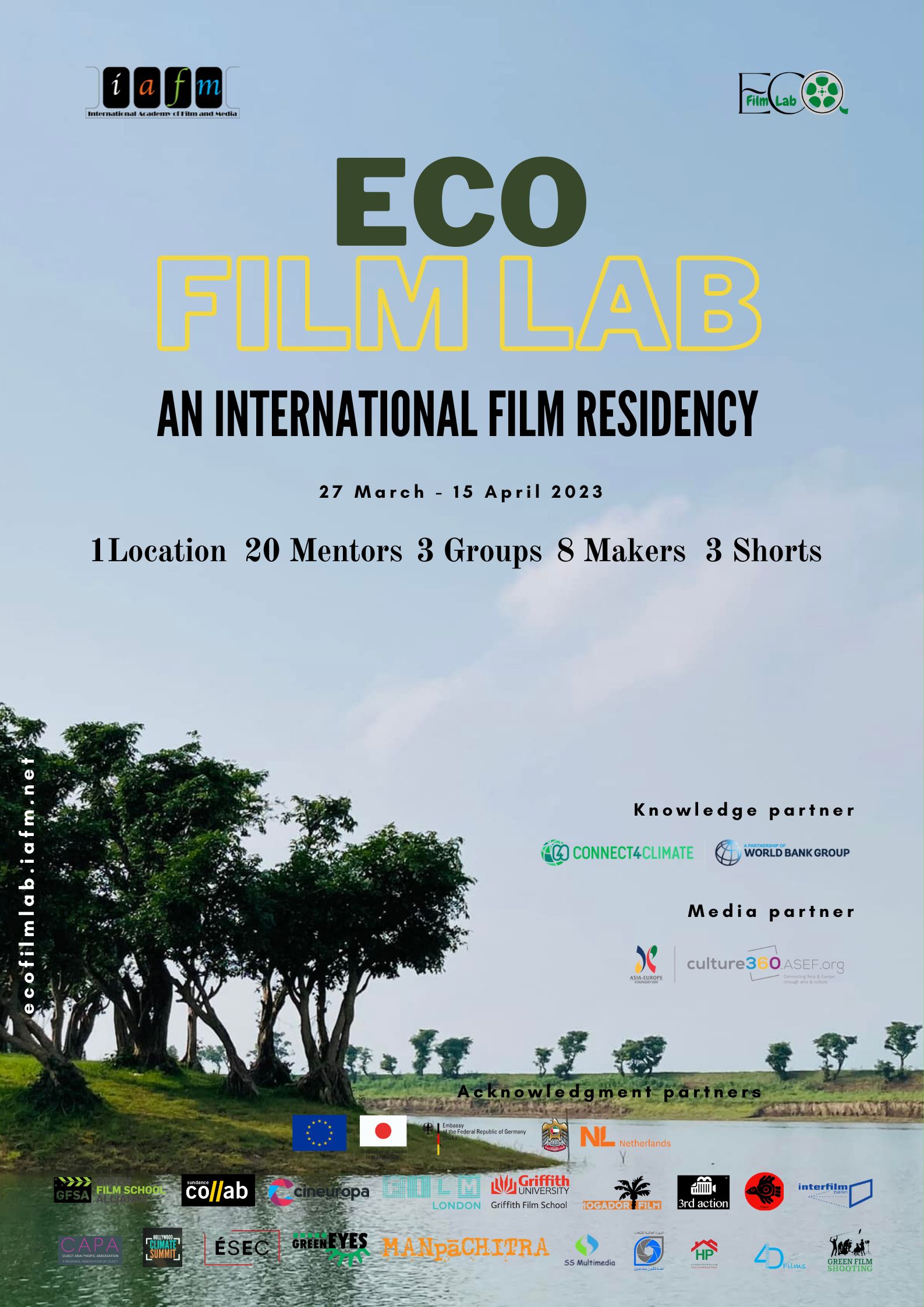
As part of culture360's Media Partnership with the Bangladesh International Academy of Film and Media, culture360 interviewed Executive Director Bibesh Roy, to learn more about ECO Film Lab: An International Film Residency in Bangladesh, a 15-day film residency programme designed to create awareness about sustainable production, green filming, and climate effects. The interview has been edited for length and clarity.
1. Could you give us a brief introduction on how and why the ECO Film Lab residency started? Tell us more about the reasons for focusing on green filming and climate change with the residency.
Bibesh Roy: In 2022, the International Academy of Film and Media joined the Green Film School Alliance as the first film school from Asia. We are dedicated to investigating environmentally friendly filmmaking and promoting green or sustainable filmmaking in Bangladesh.
To foster community and interaction with a worldwide audience, we established the ECO Film Lab programme, to raise awareness of climate change among filmmakers all across the world while also examining their artistic voices. Two topics were explored during the ECO Film Lab: eco-friendly filmmaking techniques from learning to production, and the filming theme of climate action to cover the current climate effects across the world, especially in Bangladesh.
Film residencies are one of the finest hands-on approaches to learn about filmmaking. For the ECO Film Lab Residency, we engaged foreign mentors and integrated a hybrid approach, with 5 days of online sessions and 10 days of on-site filming and three short films were created amongst the three groups of participants.
Nature, people, and climate change were the subjects of our shoot during the ECO Lab. Participants from the film residency maintained the highest standards of sustainable filmmaking while sharing their stories about climate change. Subsequently, the American Film Institute, will host the final stage of post-production for these three short films and the winning team will get a one-year scholarship from Sundance Collab, a renowned American film organisation.
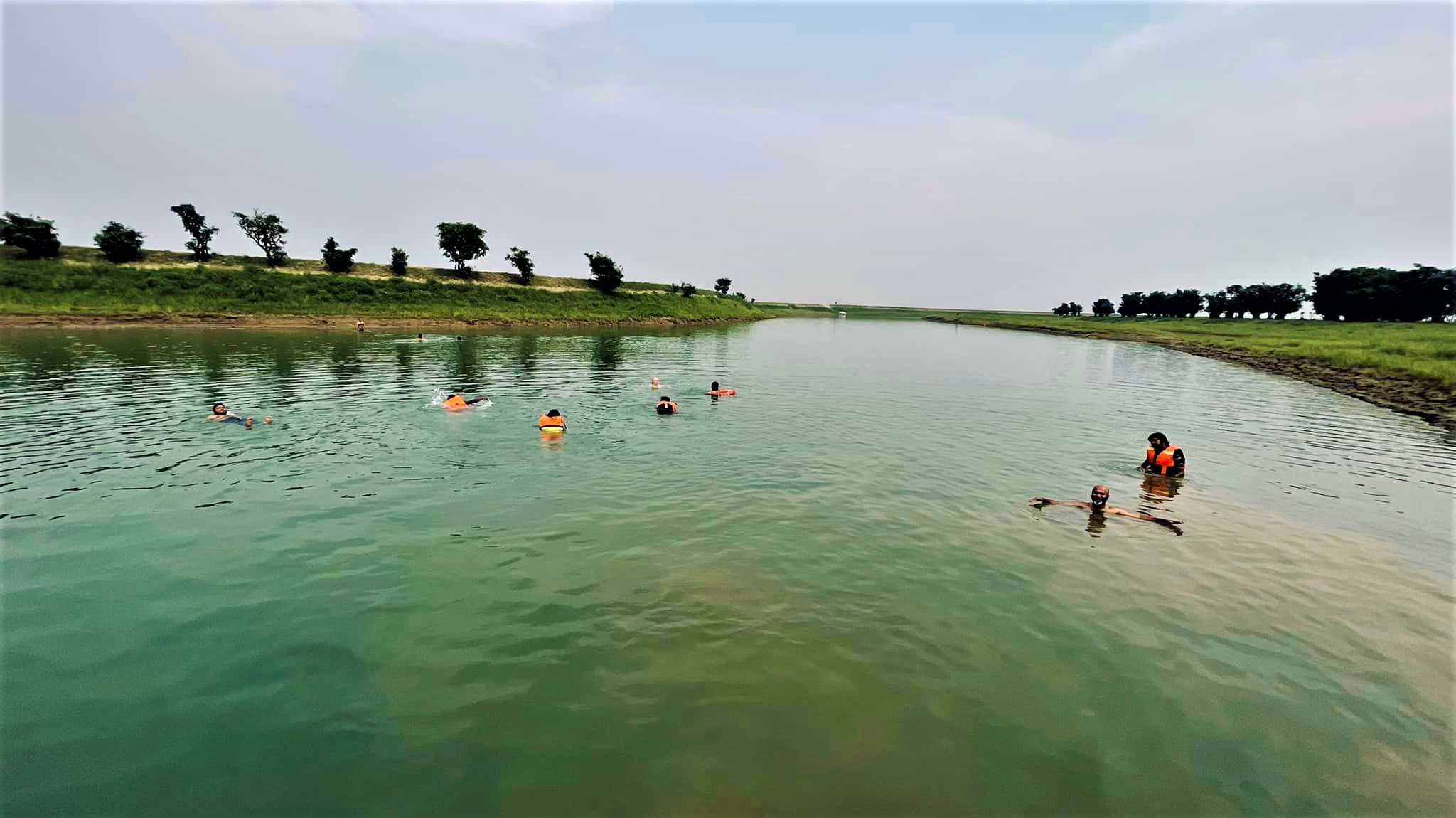
1. Location of ECO Film Lab Residency, Tanguar Haor, Sunamganj, Bangladesh © Bibesh Roy
2. The residency took on a hybrid format, where the first half of it included online sessions with the mentors and an in-person component after in Tanguar Haor, Sunamganj, Bangladesh. What was your experience with the hybrid format of the residency? Do you think such a model works in the context of a residency, in terms of sharing and learning?
Bibesh: I felt that this hybrid approach helped us in obtaining the greatest amount of mentoring support from across the globe. Participants in the lab had greater opportunities for sharing and learning from renowned film professionals. We were also able to decrease the prices of things like plane tickets, local transportation, meals, etc. in the context of a sustainable strategy.
Additionally, all participants got an on-site full-time mentoring opportunity from the residency mentors during the hands-on learning process. They received guidance from mentors during shooting, site visits, concept generating, brainstorming and correcting.
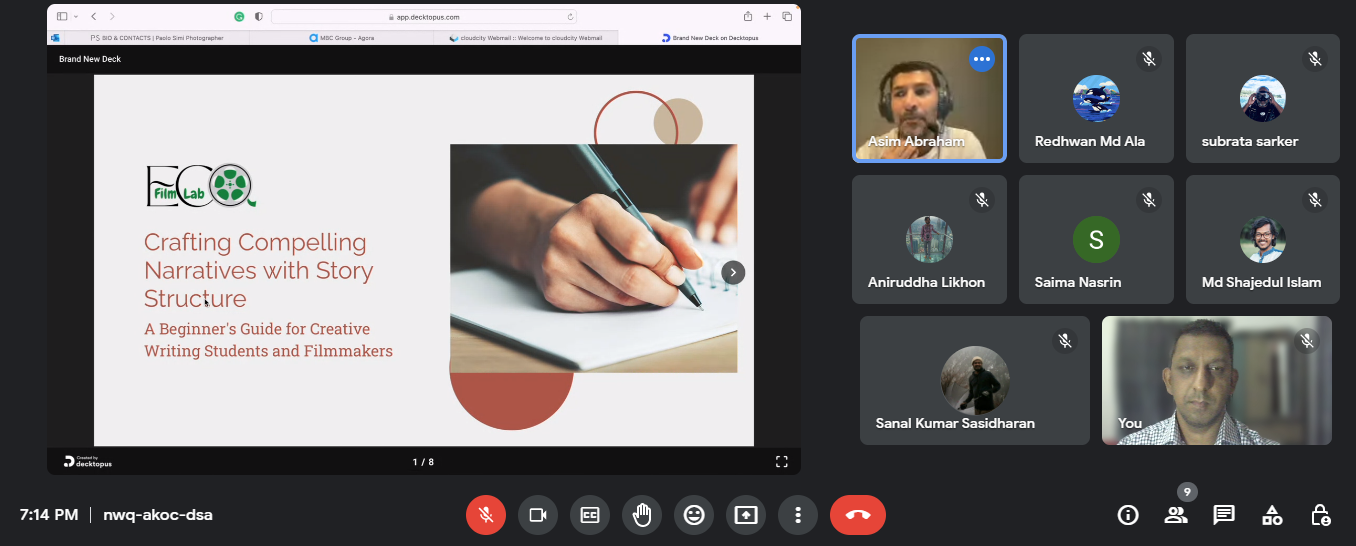 |
2. ECO Film Lab Online Session © Bibesh Roy |
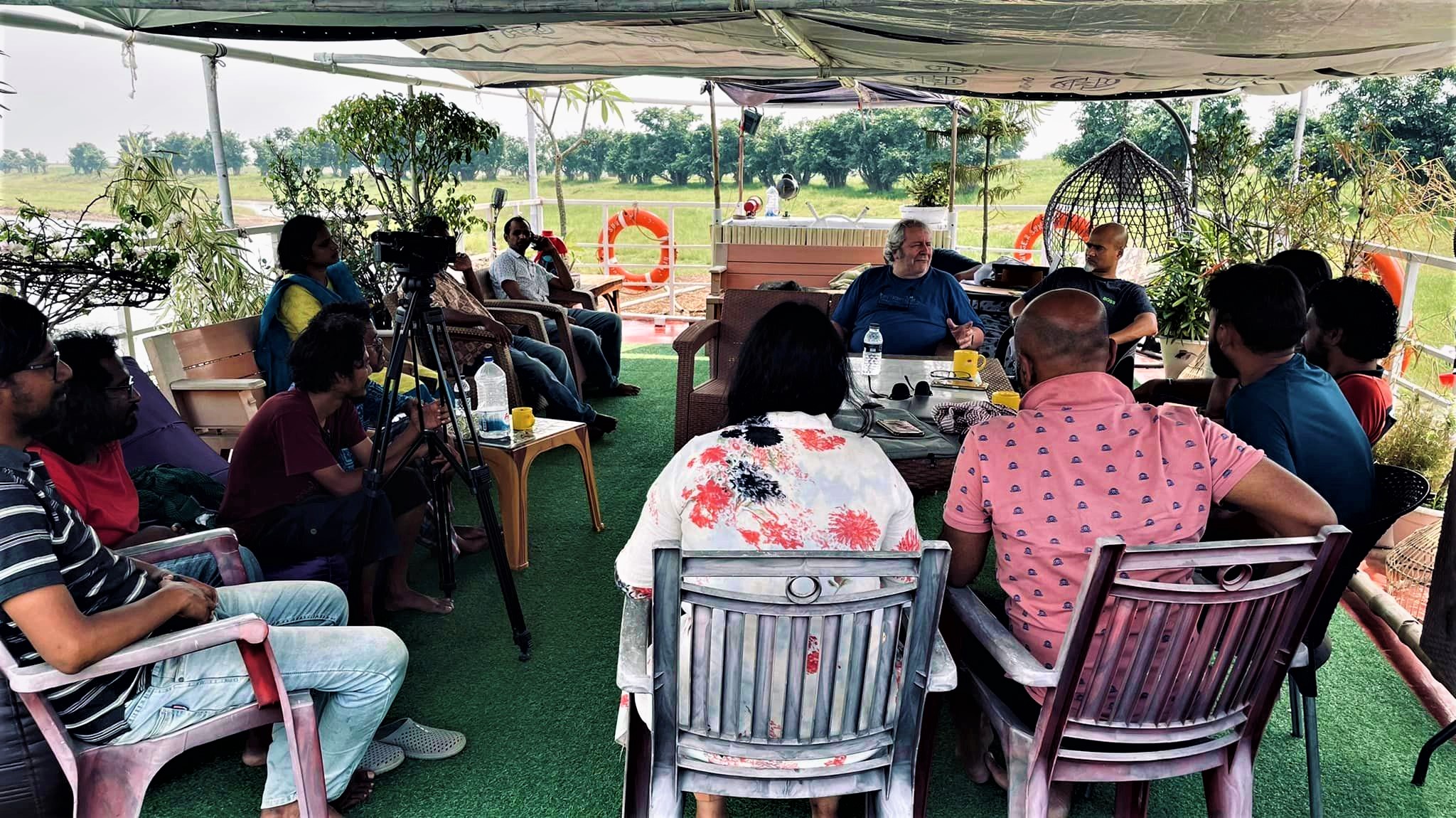 |
2. On-site Group Discussions with Mentor at ECO Film Lab Location © Bibesh Roy |
3. How would you describe Bangladesh’s film sector? In your opinion, what are the main issues or challenges that the sector faces?
Bibesh: The history and culture of Bangladeshi Cinema is not particularly recent. There were classic and golden era periods in Bangladeshi film. Today, the movie industry is struggling and hardly any new filmmakers promote their films internationally.
Our current major problem is film education. We are not able to offer our young talents resources and personnel of an international grade in the film education sector. There is also room for improvement in our rather sparse international co-production. We lack a reliable local and international distribution mechanism. No film commission exists in Bangladesh to assist the whole film ecosystem in terms of distribution, production, education and even in terms of helping to develop a viable business.
4. Could you share with us a little about the filmmakers from Bangladesh? Is green filming a popular medium that local and international filmmakers delve into?
Bibesh: Young filmmakers from Bangladesh are now succeeding greatly. They are taking part in several international film festivals, receiving honors and nominations, and receiving funding from various film marketplaces and platforms.
Bangladesh is a fairly recent adopter of the green filmmaking idea and the Bangladesh film industry needs to adopt this green filmmaking strategy. In fact, Bangladesh is suffering a lot from the climate change effect. If we continuously adopt this green filming practice, then the next generation will benefit. The concept of an ECO Film Lab is hence greatly appreciated by The Green Film School Alliance.
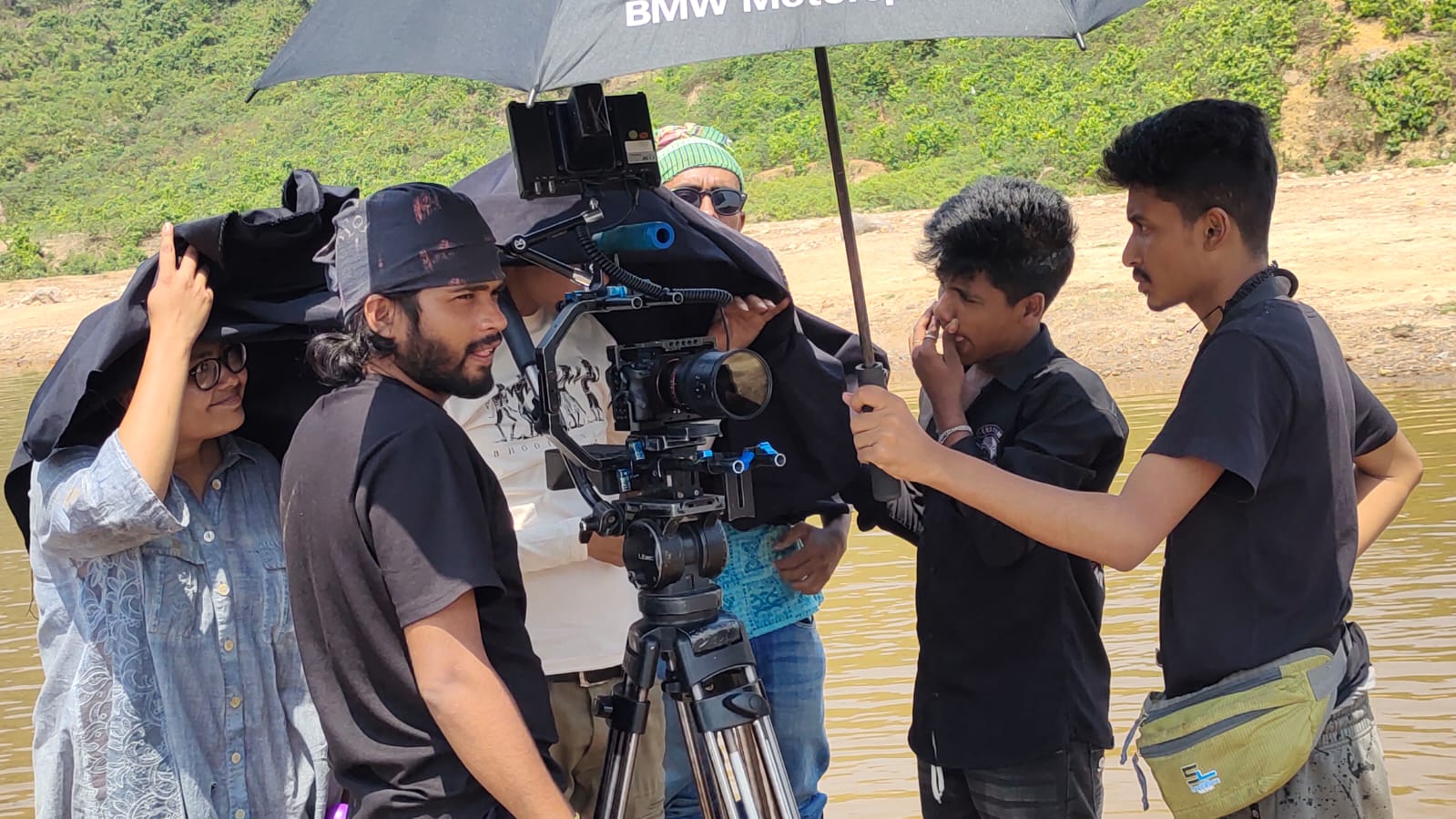 | 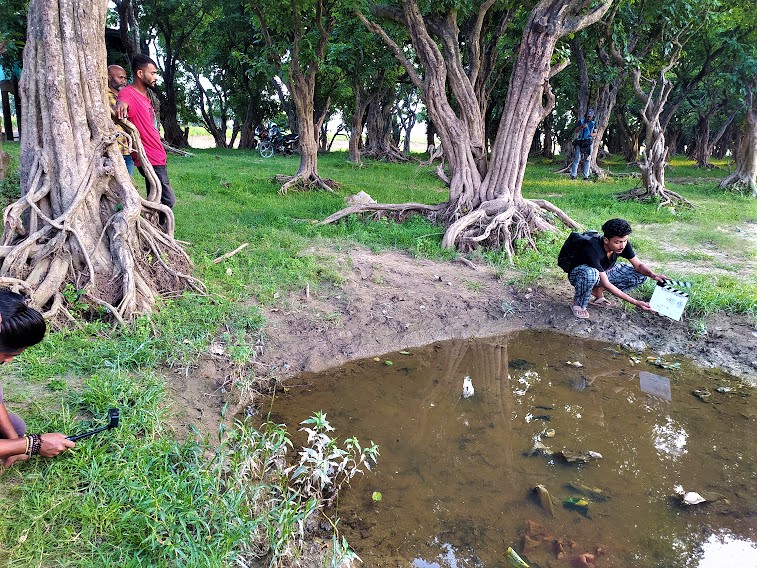 |
3. On-site shoot during ECO Film Lab Residency © Bibesh Roy | |
5. You’ve invited global filmmakers from Italy, Germany, the United Kingdom (UK) etc. to mentor the residency participants. What is the importance of these interactions? In your view, how can the two regions, Asia and Europe, deepen cultural exchanges in the area of film?
Bibesh: We asked more than 20 mentors from around the world since we thought it would be fascinating and useful to gain insights from countries such as Australia, the UK, Hungary, the Czech Republic, Italy, India and more. Participants would then be able to gain extensive information from a variety of mentors with expertise in many fields.
I believe that the cinematic arts as a whole may create positive and powerful cultural ties between Asia and Europe. However, in order to increase cooperation between Asia and Europe, we need to work on the policy level. We are aware that European projects dominate the majority of modern art-house filmmaking and activities and in majority of the sectors, Asian nationals are not as qualified. Therefore, If we can increase cultural exchanges and activities between Asia and Europe, it will help us navigate our cultural variety and spur creative and economic development.
6. What are your future plans for ECO Film Lab, do you have any specific goals you would like to attain in the future for the residency?
Bibesh: In order to promote future participation from all across the world, we want to develop the ECO Lab initiative on numerous levels.
"With ECO Film Lab, we want to use the power of cinema to spread ideas about sustainability and environmental consciousness. We fully believe in the capacity of narrative to elicit constructive change and foster an international conversation about crucial ecological concerns." We have big ideas for the future, building on the success of the International Film Residency. ECO Film Lab's ultimate objective is to establish Bangladesh as a major center for educating filmmakers and produce films that are ecologically sensitive.
Cover Image: ECO Film Lab poster © Bibesh Roy
About the Interviewee
Bibesh Roy has been working in the cinema industry since 1995, starting with the Film Society Movement and subsequently assisting in the industry as an assistant director. He has also worked as an organiser in many Film Festivals, Film Weeks, and Retrospectives, in addition to attending workshops and courses from different organisations on different topics. In 2002, he made a feature fiction DHANER KABBYO, based on a noted Bangladeshi writer's short story on climate change's effect on farmers. During the filmmaking process, he realised that film education was very much needed for Bangladeshi media makers and started the International Academy of Film and Media (IAFM) in 2006, to provide international standard film education. Bibesh is now working on Green Filming and a sustainable film production approach to amplify climate awareness.
Since 2012, culture360.ASEF.org has supported the outreach and visibility of over 65 arts events in Asia and Europe. We strive to continue supporting on-site and virtual arts events across the 2 regions through a variety of communication activities. To know more, take a look at our Media Partnerships page and follow us on Facebook and Instagram.
Similar content
deadline
27 Mar 2023
posted on
09 Mar 2023
from - to
22 Aug 2022 - 27 Aug 2022
from - to
25 Oct 2022 - 25 Oct 2022
deadline
21 Aug 2021
from - to
17 Nov 2011 - 27 Nov 2011

